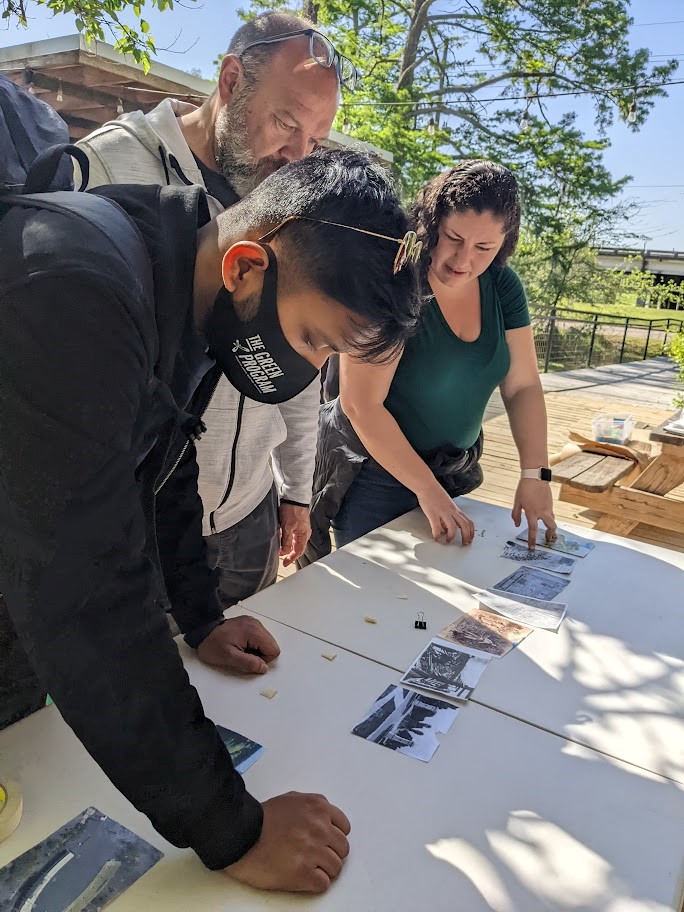Cari Covell, one of Walden’s newest hires, recently attended The GREEN Program conference in New Orleans, Louisiana, and reflected on her experience. The conference allowed her to immerse herself into New Orleans’ efforts toward sustainable restoration after Hurricane Katrina devastated the city when it made landfall on August 29, 2005.
What was the premise of the conference?
The conference was hosted by The GREEN Program, which is an experiential education program focused on our world’s most pressing issues in sustainable development. Students and young professionals gather in various locations around the world to learn, discuss, and implement renewable and sustainable initiatives throughout local communities.
The theme for this conference was restoration efforts after a natural disaster. Professional guides navigated the attendees through the intricacies of the city’s waterways and wetlands to help them become familiar with the geography. Attendees learned about the history of New Orleans’ settlement and the importance of the land to civilization. The goals were to understand the severity of devastation and how to rebuild the community using sustainable initiatives. The group considered prevention tactics from engineering and regulatory perspectives, the practicality of available resources, and cultural integrity.

Pictured, Covell (right) performs an exercise to determine the history of land use in New Orleans based on past photos. She used this information to design a community park that celebrates local culture.
Who were the professional guides and what did they teach you?
The professional guides were locals of New Orleans with technical and historical knowledge who have lived in other states and abroad throughout their careers. Rene Brunet previously worked for the Al Gore Climate Project and taught attendees the valuable lessons learned in New Orleans after Hurricane Katrina to prepare for stronger storms like Hurricane Ida that hit the city exactly 16 years later on August 29, 2021. Water sloshing against the earthen levees caused erosion of the foundations in twelve locations around the city, most notably the London Ave. levee in the Gentilly neighborhood.
Gentilly is where guide Butch Sager had his family home. He detailed how his family evacuated and lost everything upon return. As many others in the neighborhood began to rebuild, Sager noticed that many homes were being put on stilts several feet above the ground. Butch noted that this was a good idea to keep the water at bay, but is a poor solution for resisting wind and flying debris. Additionally, the pumps in the levees are not strong enough to handle intense rain in a short amount of time. Therefore, the local park began expanding into a greenway that acts as a small wetland barrier.
Did you engage with any local sustainability organizations?
Attendees had the pleasure of volunteering with two prominent organizations in New Orleans. Restore the Bayou is actively seeking to reintroduce freshwater into the brackish waters of the Mississippi River Delta to provide a proper environment for wetland restoration. These wetlands are critical for the protection of the Lower 9th Ward neighborhood. Grow Dat Youth Farm uses City Park, the main green area of New Orleans, for food gardening while providing nurturing education opportunities for underrepresented youth to build power for personal, social, and environmental change.
What was the most valuable part of the conference?
The value is in understanding how a melting pot of cultures can thrive on historic land while actively trying to prevent the damaging effects of climate change. People have connections with each other and with the land. The climate refugee crisis is ever-growing and people need to take initiative to protect their living environments. The Intergovernmental Panel on Climate Change (IPCC) reports that climate change is affecting the strength of hurricanes, but can be mitigated through preventive actions of conservation and sustainable practices.
Walden actively works on coastal waterways and wetlands, and has experts available for assistance on similar projects. Please contact us at 516-588-6859.
